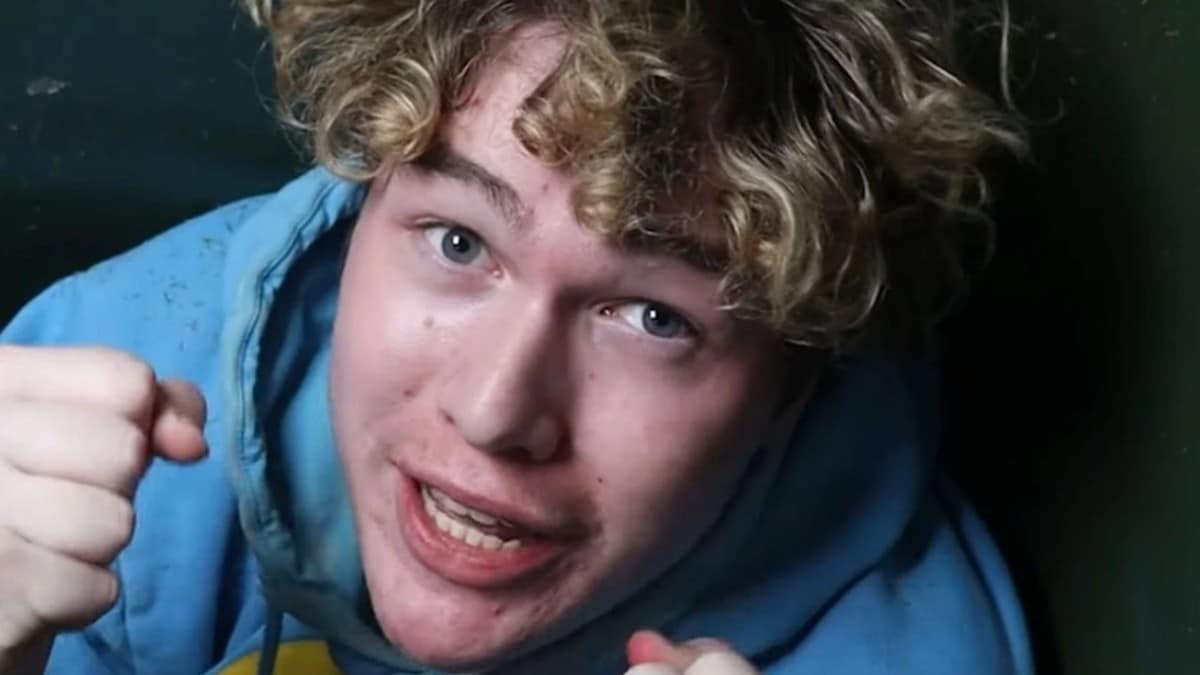People need sleep to survive. However, a YouTuber recently attempted to break the world record for no sleep. Creator creator Norme, who boasts 1.
2 million subscribers on the platform, was live on YouTube for over 250 hours. The Irish-Australian YouTuber’s stream quickly became popular as many people joined in to watch him stay awake. However, the issue started when Norme started showing serious signs of sleep deprivation.

Here’s a look at what happens to your body during sleep deprivation. No-sleep stream taken down Throughout the livestream on YouTube, Norme’s brother Don had been helping him stay awake. He splashed water on him and made him stand up when he got too tired, as per News18 .
However, Norme soon started showing serious signs of sleep deprivation, like passing out, hallucination and becoming incoherent. The content creator was over 250 hours into his “no sleep” attempt when YouTube removed his Awake for 12 Days WORLD RECORD stream just 12 hours before he was supposed to reach his goal. Later, he shared a picture showing the message from YouTube removing his stream.
I GOT BANNED FROM YOUTUBE 💔 literally 12 hours from goal istg crying rn pic.twitter.com/qqObVGbI7R The message read, “It looks like Awake for 12 days WORLD RECORD LIVE 24/7 didn’t follow Community Guidelines.
To help keep our community safe, we removed it from YouTube. We think your content didn’t follow our harmful and dangerous policy." Notably, the Guinness Book of World Records doesn’t track no-sleep records, as there are some serious health risks and complications.
YouTube banning the stream didn’t deter Norme from continuing his “world record” attempt on Kick . Robert McDonald set the mark that Norme is attempting to surpass in 1986, as per News18 . He went 18 days, 21 hours, and 40 minutes without sleeping, according to the Guinness Book of World Records.
Sleep deprivation Sleep is essential for the human body to heal itself and carry out necessary biological processes. Every night, adults require roughly seven to eight hours of sleep. Sleep deprivation is the state in which you receive either inadequate or no sleep at all.
Short-term sleep loss is usually not a cause of concern, however, prolonged or regular sleep deprivation may lead to major health problems, like inflammation, weakened immunity, and decreased cognitive performance, according to Healthline . Stages of sleep deprivation There are typically five phases of sleep deprivation. Usually, the stages are separated into intervals of 12 or 24 hours.
Usually, the longer you stay up, the worse the symptoms are. Lack of sleep for a full day is equivalent to having a blood alcohol content of 0.10 percent, according to the Healthline which cited Centres for Disease Control and Prevention (CDC).
The symptoms of staying up all night include weariness, tremors, brain fog, drowsiness, irritability, rage, higher risk of stress, decreased alertness, impaired focus, food cravings, swollen eyes, and dark circles under the eyes. After 36 hours of sleep, symptoms become more intense as different parts of your brain have a hard time communicating with each other, impacting cognitive performance. Symptoms like impaired memory, behavioural changes, lack of decision-making, slow reaction time, increased inflammation, appetite, and extreme fatigue.
After 48 hours, extreme sleep deprivation hits in, making it harder to stay awake. People often have microsleeps and may experience anxiety, depersonalisation, illusions, delusions and disordered thinking. After four days, one’s perception of reality is severely distorted and urge for sleep becomes unbearable.
Treatments and recovering Sleeping more can help you recover from sleep deprivation. The extent of lack of sleep determines the most effective course of action. Napping, practicing proper sleep hygiene, using over-the-counter or prescription sleeping drugs, light therapy, breathing devices, and prescription sleeping aids are all viable solutions.
With inputs from agencies.



















